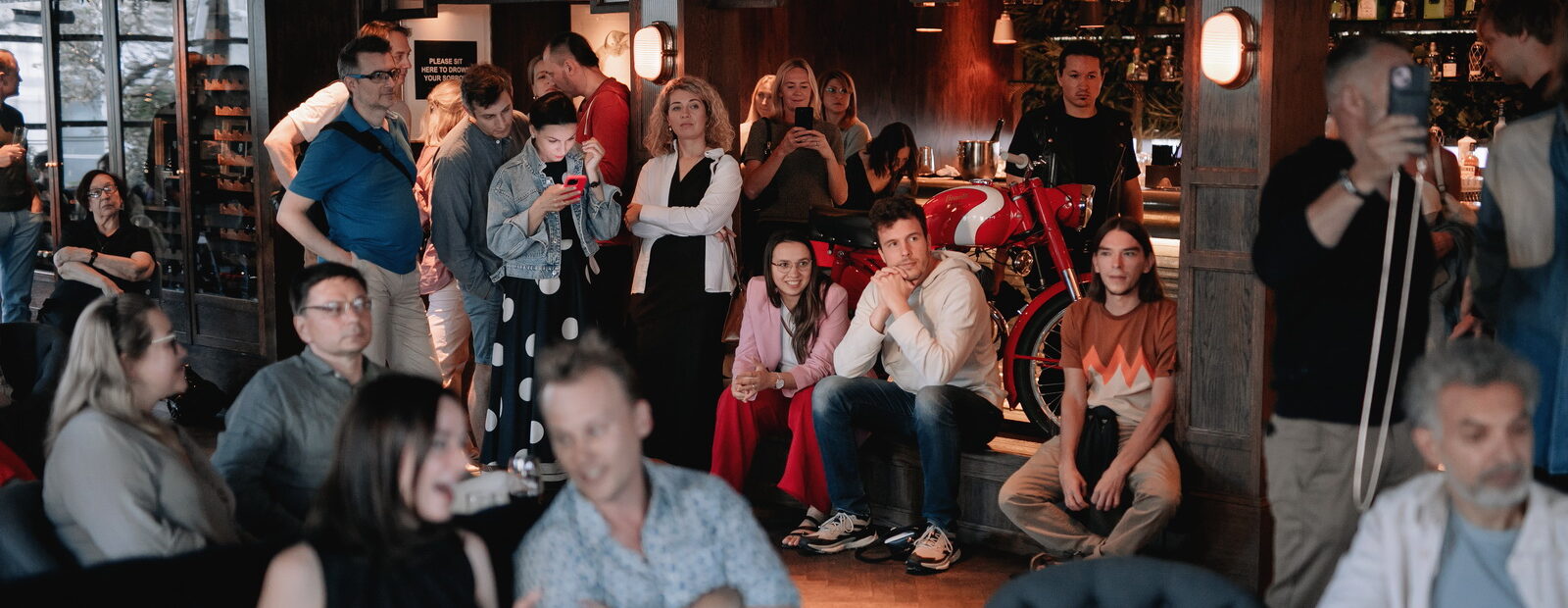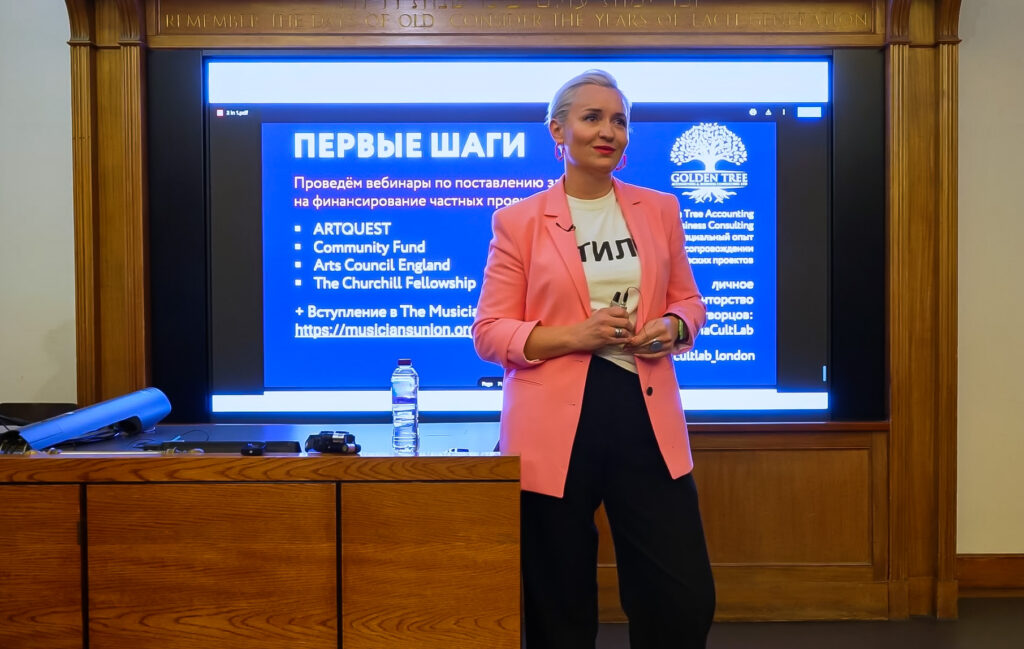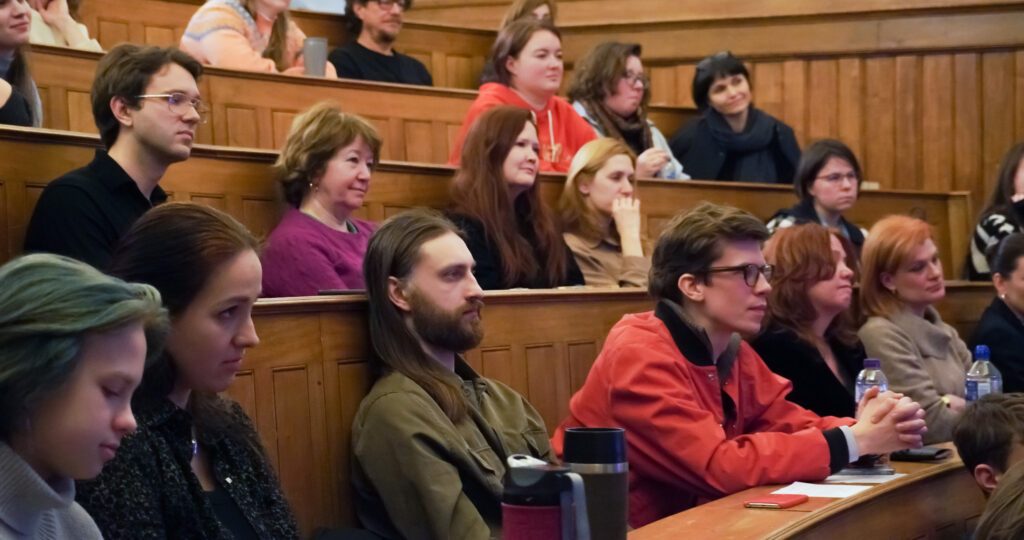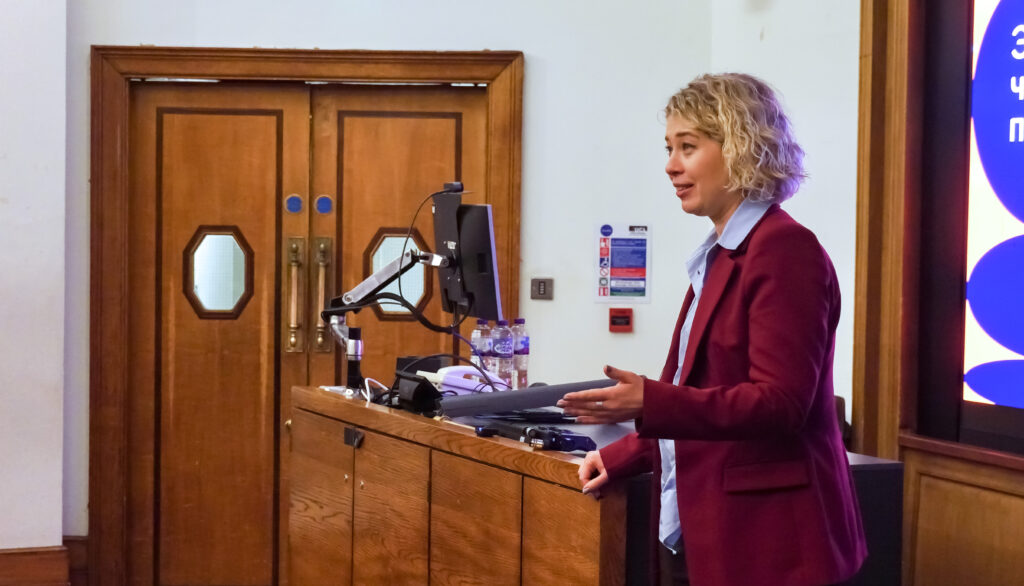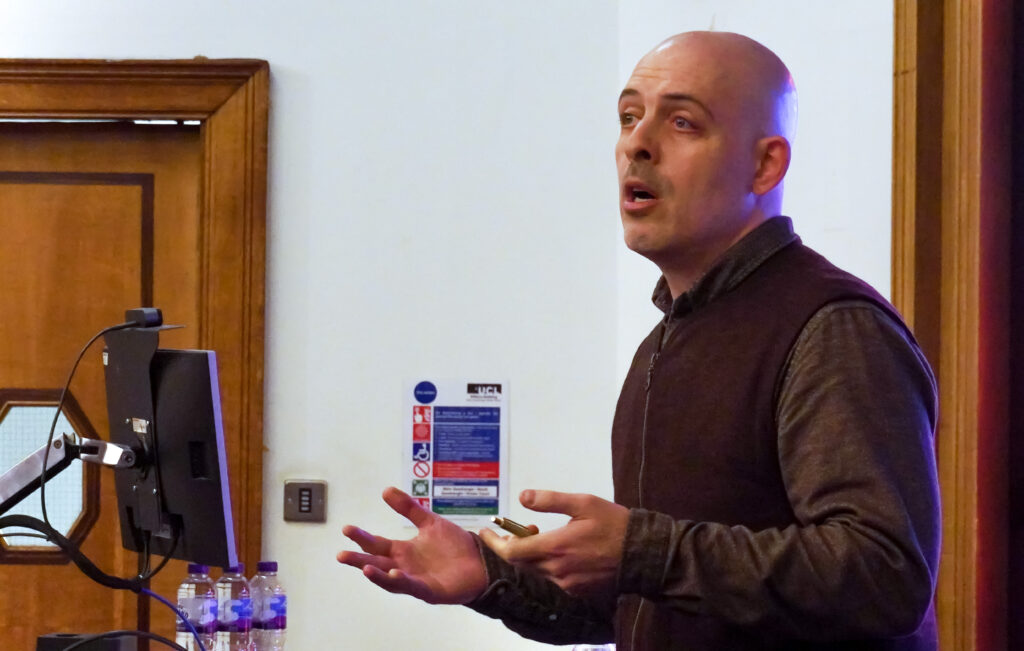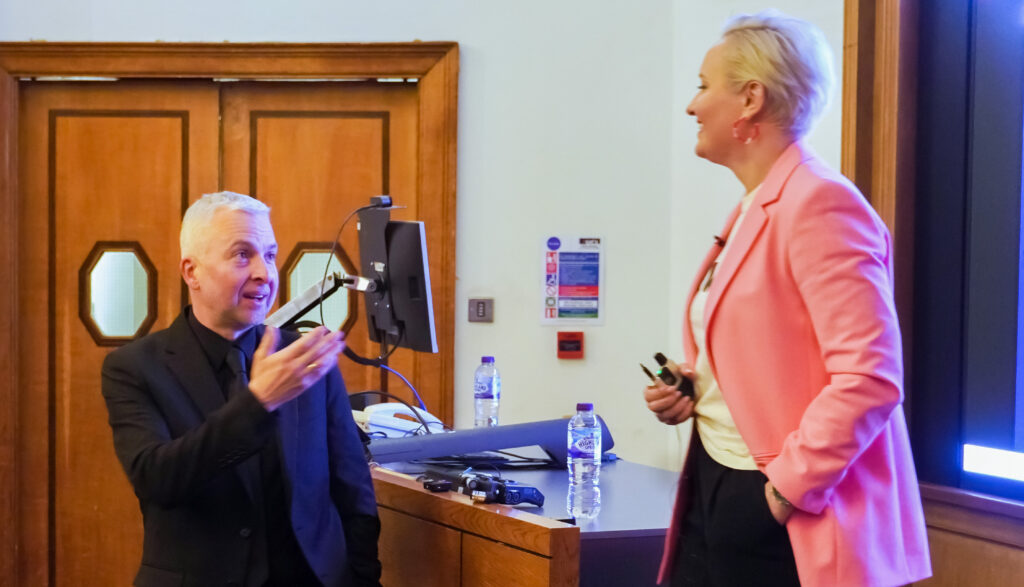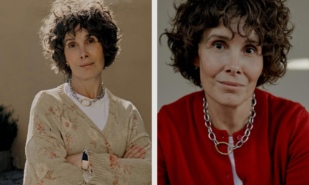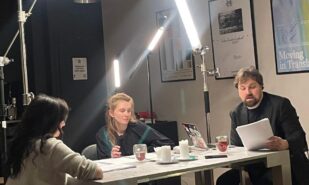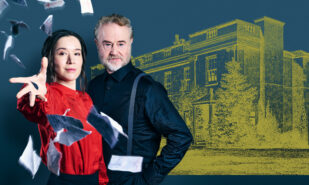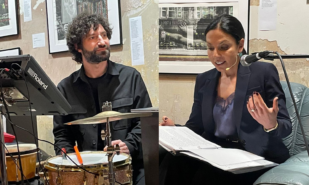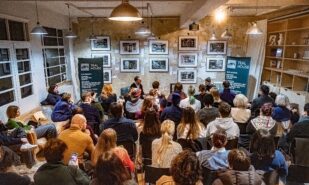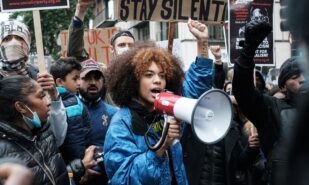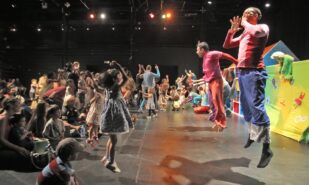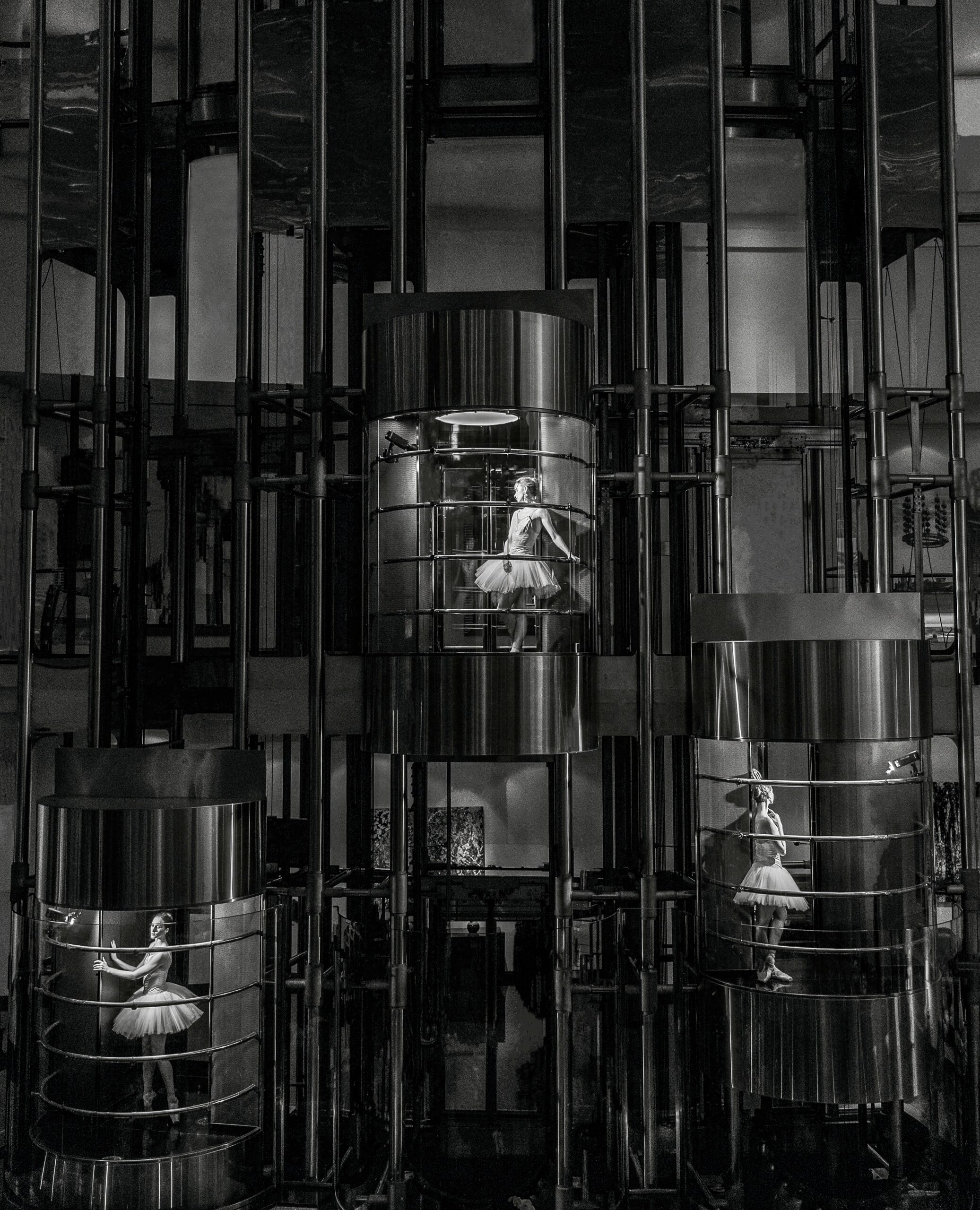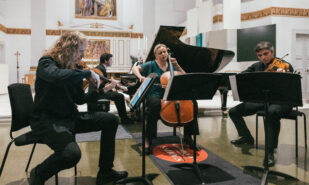They Are Not Alone: A New Community for Artists of All Disciplines Has Been Created in London
The new CultLab Creative Hub could hardly be better described than by the geological term conglomerate—a collection of diverse individuals, like little stones, united by a shared experience—hardships, hopes, dreams, and challenges.
This is an attempt to build a completely new kind of community, grounded in a principle that might seem utopian but is, in fact, quite achievable. There are no “leaders” here, no “bosses,” only organizers and people who have chosen to help unite all kinds of creative individuals who have come to the UK—artists in the broadest sense of the word. There is no room for rivalry, jealousy, or competition here. Instead, there is always space for support and assistance.
CultLab Creative Hub is a Russian-speaking (for now!) community of creative emigrants in London, bringing together artists, musicians, painters, directors, producers, and other professionals across all fields of art. It’s a place for experience-sharing, forming creative teams, and support in adaptation issues—including psychological and coaching programs. All of this is part of a new initiative by Maria Semushkina, head of the production company CultLab, creator of the Usadba Jazz Festival, and a radio host. She brings unique expertise to the table: her own challenging immigration experience, vast international event production background, and a seemingly magical talent for creating art collaborations.
The goal of the new community is to give artists the sense that success can be achieved outside the usual competitive frameworks and beyond the feeling that agreements are impossible. One can break free from the patterns of despair, hopelessness, and division—and create art. That’s what the founders of CultLab Creative Hub believe.
This vision shaped the very first gathering. A 150-seat hall filled almost instantly after registration opened. Admission was free, held in a university lecture hall at University College London—everything hinted at the delivery of “important information.” The conversation, however, was grounded in realism. Rose-tinted glasses (if anyone wore them) came off within the first ten minutes. Among the audience were actors, musicians, writers, and artists—many of whom arrived on a talent visa.
The speakers confirmed everyone’s concerns: getting a visa is one thing; finding your place and, more importantly, earning a living is quite another. Yes, you have to start from scratch. Yes, you have to work hard—and nobody cares how successful you were “in your past life.” There are no guarantees—a talent visa doesn’t provide them. There’s no special support. Essentially, there’s nothing—except the legal right to be in the country (and even that, they note, is already quite a lot).
So what is there? There are all the skills acquired over a lifetime—but they will need to be proven through work, social capital will need to be rebuilt from scratch, networks reestablished—all under the heavy emotional burden of emigration. It’s hard—no one is denying that. Especially for artists—people with a sensitive soul. But often, that very vulnerability is the source of one’s greatest strength.
Ekaterina Sachkova, a researcher from Chatham House who studies and advocates for this new wave of Russian-speaking emigrants, noted that there are no specific programs for this social group in the UK—unlike in other European countries. So where can resources be found? She answers herself: only in community self-organization. Only we can help ourselves. And at the same time, she encourages learning about the world we’ve entered—understanding how local civil society functions and how democracy works. The word “relocator,” she notes, has faded away, and our personal stories now stand in opposition to propagandist narratives.
The energy in the room shifted during the powerful presentation by Anna Radchenko, photographer and entrepreneur, who shared her projects and self-promotion experience gained over 15 years of working in London. She spoke of photographing oligarchs’ wives, of promoting her non-mainstream shoots, and of facing rejection after rejection without breaking down. Radchenko offered perhaps the most practical advice of the day: Nobody cares about you. Nobody knows you—and that’s your advantage. You don’t have to worry about what people think or say about you. This is a unique degree of freedom, where in search of your place, you can afford to try anything.
But perhaps the most important speech came from Roma Liberov, director and producer. He posed the painful question of how to live and what to do during times of terrible war. This part of his talk was undeniably tragic. “You can pretend none of this is happening, but it’ll be obvious you’re not living in the present. I have no monopoly on the truth, but I share what I think—appropriately and respectfully. Of course, there have always been egomaniacs like Picasso and Dalí, who pretended nothing existed outside of themselves—but they are the minority.”
Liberov asked how unprecedented grief changes us—have we become more compassionate, more responsive to others? And how, having found ourselves in new societies, new countries, can we learn to live in them? He answered his own questions: “Less than a year ago, I founded the We Exist Foundation. It’s aimed at helping any kind of creators who have recently emigrated from Russia.” The foundation’s focus, he explains, is not on industrialized production but on deeply human projects in need of support: “I’ve worked in the cultural sphere all my life, and I understand that culture is subsidized by nature. But now, we’ve found ourselves in a new reality. We must strive for self-sufficiency. We can forget about deep subsidies—at least in the countries where we now live.”
And he said one thing that could serve as the very heart of CultLab Creative Hub’s philosophy: Strategy is better than tactics. “I repeat this constantly. And it’s hard to explain in brief. Tactics—quick moves to survive today—lead nowhere. I see many of my fellow creatives taking panicked tactical steps. But only strategy will save us. The question of survival cannot be the main one.”
The hub does more than help artists navigate complicated bureaucracy. It brings together people facing the same struggles and connects them with those who’ve already been through it. As its broader mission, CultLab Creative Hub aims to break out of the closed loop of the emigrant maze, creating collaborative projects that unite artists from across the globe.
The next event will be on April 26—featuring, for example, director Maxim Didenko among the speakers. There will also be an in-depth discussion on grants and how to obtain them: what criteria are used, what documents are required, and how to submit everything properly.

